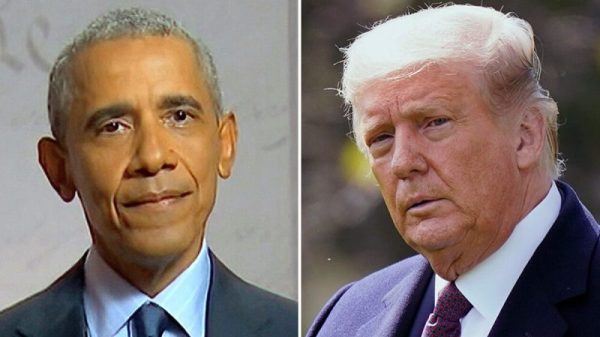As the 2024 election year begins, the Iowa caucuses ring in the race with political fanfare and a flurry of media attention — and, to the disappointment of many an American history teacher, questions about what exactly a caucus is.
While the practice of caucusing — when voters gather at their local voting precinct to listen to speeches, discuss candidates and fill out ballots — is straightforward enough to define, linguists and dictionaries maintain that the origin of the word itself is difficult to trace. Anatoly Liberman, a professor of linguistics at the University of Minnesota, wrote in an email that his “database on this word is huge” and yet, “it is a monument to guesswork.”
In its current form, the word dates back to 18th-century Boston and was used to describe a political club that hosted discussions and elections for public office, according to Britannica. In 1763, the word made an appearance in future president John Adams’s diary, in a mention of the Boston “Caucus Clubb” — where, he wrote, “they smoke tobacco till you cannot see” across the room while choosing who would run for municipal positions.
While its origins remain a mystery, “what’s pretty clear is that once the word is set, there’s an idea that carries through for 300 years,” Daniel Schlozman, a political science professor at Johns Hopkins, said in a phone interview, connecting colonial Boston to Monday’s Republican caucus. “It’s not just a vote, there’s some process of coming together and talking before there’s a decision made.”
To some, “caucus” might sound like Iowa in January; a mountain range spanning Europe and Asia (Caucasus); a round-shaped bacteria (coccus); or the process of waterproofing (caulking). But do any of these hold water, etymologically speaking?
According to Merriam-Webster, linguist and politician John Pickering wrote in 1816 that the word is a shortened form of the phrase “caulker’s meetings,” referring to the men who waterproofed ships’ hulls and who some academics say may have been involved in Boston’s first political organization. This take gets at another common usage of “caucus,” for a group of people who work together toward a goal, such as congressional caucuses.
Another theory links the word to the Algonquin “caucauasu,” which means “someone who advises.” Historian G.B. Warden, writing in the New England Quarterly in 1970, also noted theories that connect it to the phrase “Cooke’s House,” possibly referring to the residence where Boston politician Elisha Cooke Jr. once worked — or, in a more convivial take, the Greek word “kaukos,” which means wine bowl.
This suggests “the importance of alcohol in winning friends and influencing voters,” Warden wrote. He said he preferred that theory, since the Boston Caucus was sometimes referred to as the “corkus,” “a phonetic spelling once again suggesting the connection between bottles and ballots.”
Tim Hagle, a political science professor at the University of Iowa who led his local caucus on Monday, is not as convinced by this possible origin — at least judging by modern standards. “Unfortunately [perhaps], there’s never been drinking at the caucuses I’ve attended,” he wrote in an email.
He said he could see the advisory aspect suggested by the Algonquin word, but added that caucus is “one of those words that you hear and end up using but never really understand the origins of, for me at least.”
Liberman, the University of Minnesota linguistics professor, said “caucus” originates from slang — which “dooms its etymology to obscurity.” Tracing the origin of such words, he explained, essentially means looking for similar-sounding words, whether it’s Algonquin, Greek, “an individual coinage by a wit,” or a “corruption,” the alteration of another word.
Because we cannot know who came up with it, “the answer will never be found,” Liberman said.
With no clear origin, we might seek insight in 1865’s “Alice in Wonderland,” which features a satirical “Caucus-race.” During the contest, everyone “began running when they liked, and left off when they liked, so that it was not easy to know when the race was over,” wrote Lewis Carroll, in a criticism of the caucus system. And not unlike some election years, they were left asking: “But who has won?”


































